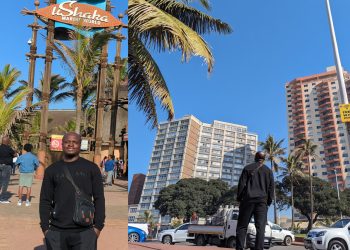
Travellers have many options to make when it comes to carrying money on a trip. While some rely on traveller’s cheques, cash passports, reloadable prepaid cards, and other cards, a good percentage of people choose to cash.
In this article, Jetsanza.com will narrow them to two; Cash and Card. The most everyday cards are Visa Card and MasterCard. These cards are linked to the holders’ bank accounts and allow them to spend directly from their accounts.
Several factors come to play if you have to settle on how to carry money on a trip. The rest of the article will guide you to make a choice.
Better Exchange Rate
Either carry cash or a visa card could give you a better exchange rate but depends on the time of travel. Travellers can compare the exchange rate on the market to what the bank charges for transactions in foreign currencies. If it becomes cheaper for you to carry cash, then go with it.
The rate you get for transactions made with visa cards can be checked on the official website of Visa.
Assuming I’m travelling to the United States from Ghana today (January 14, 2020), the cost of exchanging Ghana Cedis for a US Dollar at the market is GHS5.75 per $1. The visa website also tells me that transactions made with my card will be at an exchange rate of GHS5.86 per $1. So the best choice here is to travel with cash.
Security and Safety
For security and safety purposes, travellers are always advised not to carry too much money on them. Travellers who are safety and security conscious can carry little money with some bank cards. If for some reasons you are forced to take too much cash, only go out with what you intend using in the day. In some countries like South Africa, people carrying too much money are subject to interrogations and may have their monies seized.
Overexposing your bank cards puts you at risk but not as risker as carrying too much money. Travellers are advised to cancel their cards for new ones after each trip. Security-wise, when a card is stolen, it is easy to contact your bank to have it blocked, but when cash is stolen, it’s gone.
Card: Pros and Cons
Card theft cases keep growing as most online transactions require just the card number, expiry dates and CVV code to authorise payments. The more you use your card to make payments offline, the more likely someone will capture the details.
Because cards are linked to your bank accounts, it becomes difficult to stick to the travel budget. You are forced to shop and spend on activities you didn’t budget for.
The good side of bank cards come when you find yourself in a situation where you have to pay for some mandatory fees you did not know of. In the case of unforeseen circumstances where you are forced to spend more than your budget, bank card comes in as a saviour.
With bank card, traveller does not appear suspicious to security agencies. The security of the traveller is at it’s best as a stolen card can be blocked quickly by calling the bank. Most banks like Ecobank operate a 24-hour customer service, and cards can be blocked even at midnight.
Cards become more useful when you are forced to pay an aspect of your trip online. Hotel and excess luggage are always cheaper when paid for online.
The use of some ATMs come with additional charges which are not displayed on the Visa website when checking for an exchange rate. The dangerous part of this is that some charges are not seen immediately. You only return from a trip to meet several deductions on your bank statements.
Cash: Pros and Cons
Carrying to a country that doesn’t spend currencies available in your country can be very expensive. If you are travelling to the United States, United Kingdom or other European Country, Dollar, Pounds Sterling and Euros can easily be purchased, and you won’t have to change again when you arrive in these countries. If a resident of Ghana is travelling to Kenya and wants to go with cash, it means Ghana Cedis has to be changed to US Dollars, and then changed again to Kenyan Shillings when in Kenya. The several changes come with losses as forex bureaus make profits on each transaction.
As the world is going cashless, you become suspicious when seen with more cash. Travellers holding more money can be interrogated by security agencies and also be targets for robbers.
Card or Cash? What Jetsanza.com says
Depending on what matters most to the traveller, carrying cash or card could either be good. If you are more interested in sticking to a budget, then taking cash is the best while cards are for those much concerned about their security and safety.
Ideally, it’s advisable to carry both cash and card. If you intend carrying cash as your primary means of supporting yourself while in a foreign country, you can still take a bank card to handle emergencies or save money on items and hotels when booked or purchased online. So go with cash and only fall on the card when it becomes necessary.
If you intend travelling on card, you can as well have some little money on you as some services like taxi rides in certain countries cannot be paid for with the card.
Conclusion
Since September 2014, it has never been cheaper to use bank cards abroad. Exchange rates on transactions made with cards since 2014 are higher than the forex bureaus. Until this changes, it will continue to be cheaper to travel with cash than card. Card can be a disappointment and fail to work abroad. So if you intend falling on your card in the course of your trip, go with two or three cards, from different banks; when one fails, the other could work.
So go with card and support it with cards. Only carry little cash on you at a time.
Still have some travel questions? Ask in our Travel WhatsApp Group.












